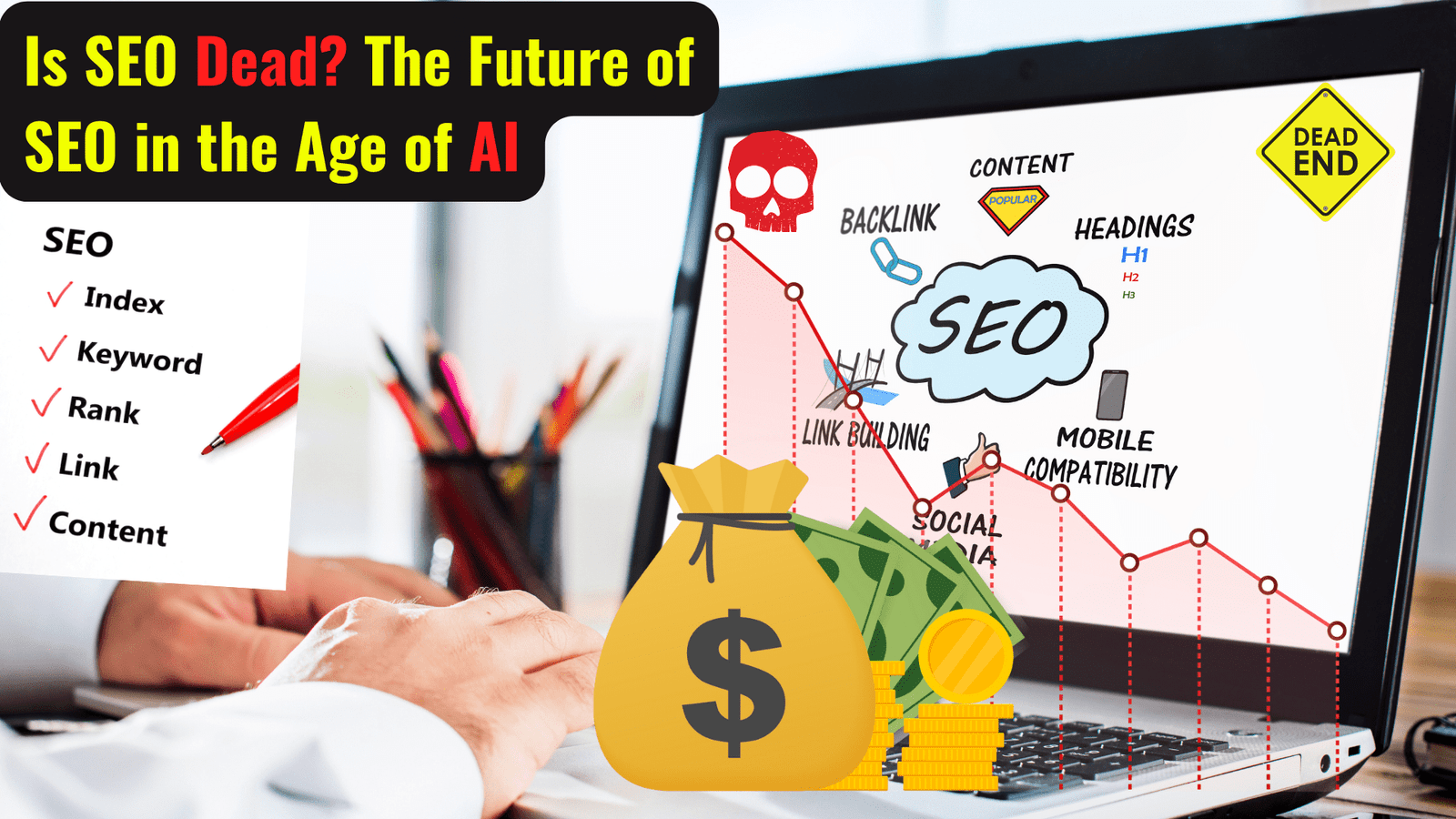
Is SEO Dead? The Future of SEO in the Age of AI
SEO, or Search Engine Optimization, has been a buzzword in the digital marketing world for years. But with the advent of AI technologies like Chat GPT and Google’s BARD, many are questioning the future of SEO. Is SEO dead? Let’s delve into this topic.
The Advent of AI in Content Creation
The success of OpenAI’s Chat GPT has revolutionized content creation. This AI model can generate human-like text, making it a powerful tool for content generation. Microsoft has integrated Chat GPT into its search engine, providing direct answers to user queries.
Google is not far behind. In its recent IEO, Google announced the introduction of BARD, an alternative to Chat GPT. With these advancements, one might wonder: if AI can generate content, what is the role of an SEO expert or a digital marketer?
The Human Touch in SEO
While it’s true that AI is superior in terms of knowledge and content generation, it lacks one crucial aspect: human experience. Many people watch videos or read blogs because they are interested in the author’s point of view. They want to understand different perspectives, which is something AI cannot provide.
For instance, you might be watching this video not just for information but to understand my perspective on the topic. This is where humans have an edge over AI. We can share our experiences and opinions, something that AI cannot replicate.
The Future of SEO: Experience Over Information
If your SEO strategy relies solely on generating informational content, you might be replaced by AI or even a kid who knows English and can reframe the content generated by AI. But SEO is not just about providing information.
Google’s EAT (Expertise, Authority, Trustworthiness) algorithm emphasizes the importance of experience. If you share your unique experiences or review products from your perspective, you add value that AI cannot replicate.
For example, if I share my experience of visiting Dubai, it adds value because it’s my unique experience. In such cases, AI cannot replace us.
Technical SEO and Voice Searches
In terms of technical SEO and voice searches, there might be changes in the future. AI might suggest website optimizations or even perform them automatically. However, regular searches are not going anywhere.
Despite the buzz around voice searches since 2016-17, they have not replaced regular searches. Google’s revenue is increasing, indicating that searches are on the rise.
The Three Types of SEO Queries and Their Future
SEO is not just about providing information. It’s about understanding the user’s intent behind a search query. There are three types of queries in SEO: informational, navigational, and transactional. Let’s discuss how each of these might be affected by AI.
Informational Queries
Informational queries are those where users are seeking information, such as “What is SEO” or “How to do keyword research”. If your SEO strategy relies solely on answering these types of queries, you might be replaced by AI. However, if you’re sharing your unique experiences or perspectives, you add a value that AI cannot replicate.
Navigational Queries
Navigational queries are those where users are looking for a specific website or page, such as “best restaurant in location X”. In this case, local SEO will continue to play a crucial role. Google earns revenue from local SEO, so it’s unlikely that AI will replace it.
Transactional Queries
Transactional queries are those where users intend to complete a transaction, such as “buy iPhone 12”. Most transactional queries are already dominated by Google Ads. So, the future of transactional queries lies with Google Ads.
The Role of Experience in SEO
The future of SEO lies in sharing unique experiences and perspectives. Google’s EAT (Expertise, Authority, Trustworthiness) algorithm emphasizes the importance of experience. If you share your unique experiences or review products from your perspective, you add value that AI cannot replicate.
For instance, if I share my experience of visiting Dubai, it adds value because it’s my unique experience. In such cases, AI cannot replace us.
Link Building and Audience Engagement
Link building is another crucial aspect of SEO that AI cannot replace. It’s not just about leaving links in the comment section or on random websites. It’s about building relationships and engaging with your audience.
For example, if two YouTube channels with specific audiences collaborate and feature each other on their channels, they exchange audiences. This is the essence of link building – gaining trust and audience from other websites because they want to mention you, not because you paid them.
The Future of SEO: Adapt and Evolve
In conclusion, while certain aspects of SEO might change with advancements in AI, SEO as a whole is not dead. The future of SEO lies in sharing unique experiences and perspectives that AI cannot replicate. So instead of asking if SEO is dead, we should focus on how we can adapt and evolve our SEO strategies in this age of AI.
SEO for Business Growth: The Future is Bright
SEO plays a crucial role in business growth. As AI technologies advance, the demand for SEO experts who understand these changes and can adapt their strategies accordingly will increase. This means more job opportunities in the field of SEO.
However, not everyone will benefit from these changes. Those who fail to understand and adapt to these changes might find themselves out of work. On the other hand, those who embrace these changes and learn to work with AI will see their value and salaries increase.
SEO Course Launch
We have recently launched an SEO course. We are offering a special discount for our audience. This course covers everything about SEO.
As soon as AI is rolled out in India, we will update the course to include how to use AI for SEO. We will also cover how to rank in the top 3 results on Google’s BARD.
Conclusion
Internet Gurukul provides an excellent AI SEO Course that focuses on the future of SEO Services. This course teaches businesses how to use artificial intelligence to improve their website’s visibility and organic traffic, resulting in higher sales and revenue. Keyword research, content development, link building, and rank tracking are all advantages. Businesses may reach their SEO objectives and prosper in the digital world by learning from AI.
In conclusion, the future of SEO is bright for those who are willing to learn and adapt. So, whether it’s good night, good morning, or good afternoon, whenever you’re watching this video, remember that the future is in your hands. Jai Hind. Vande Mataram.


